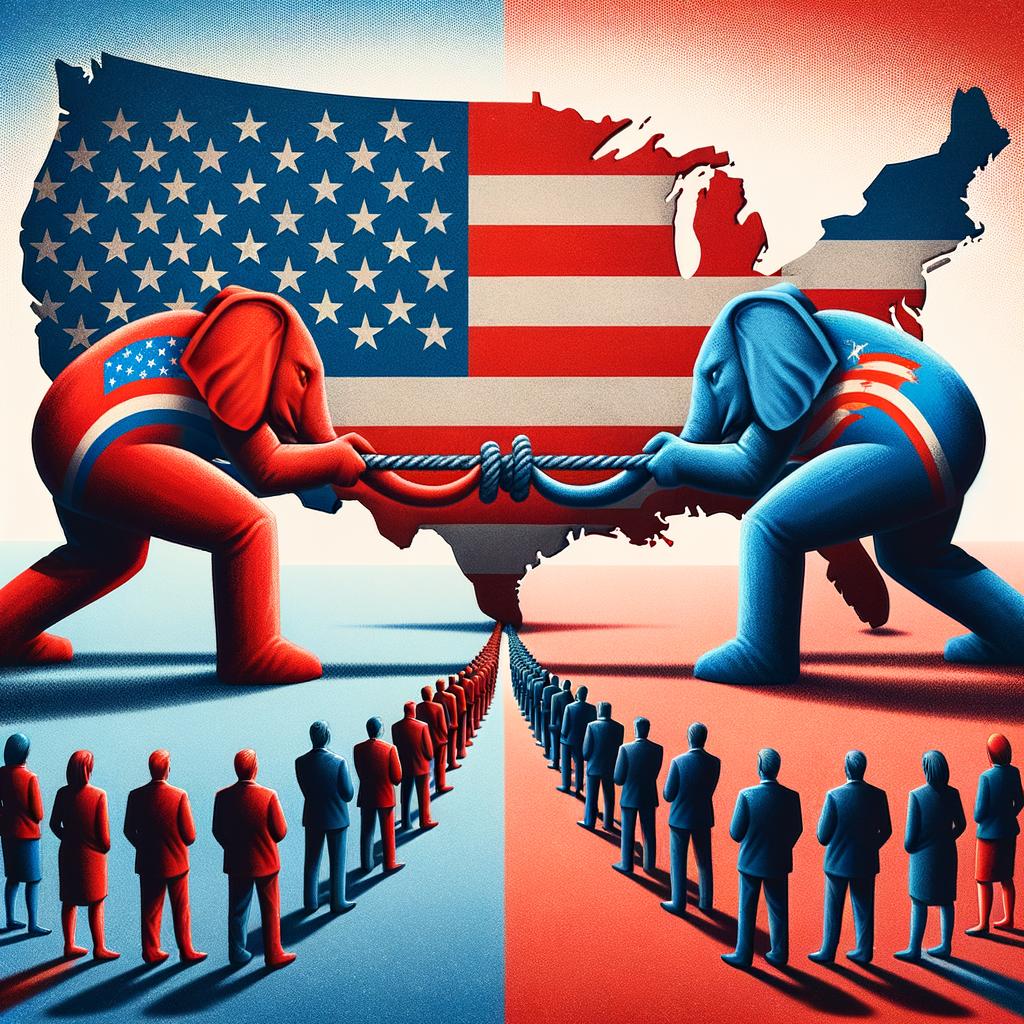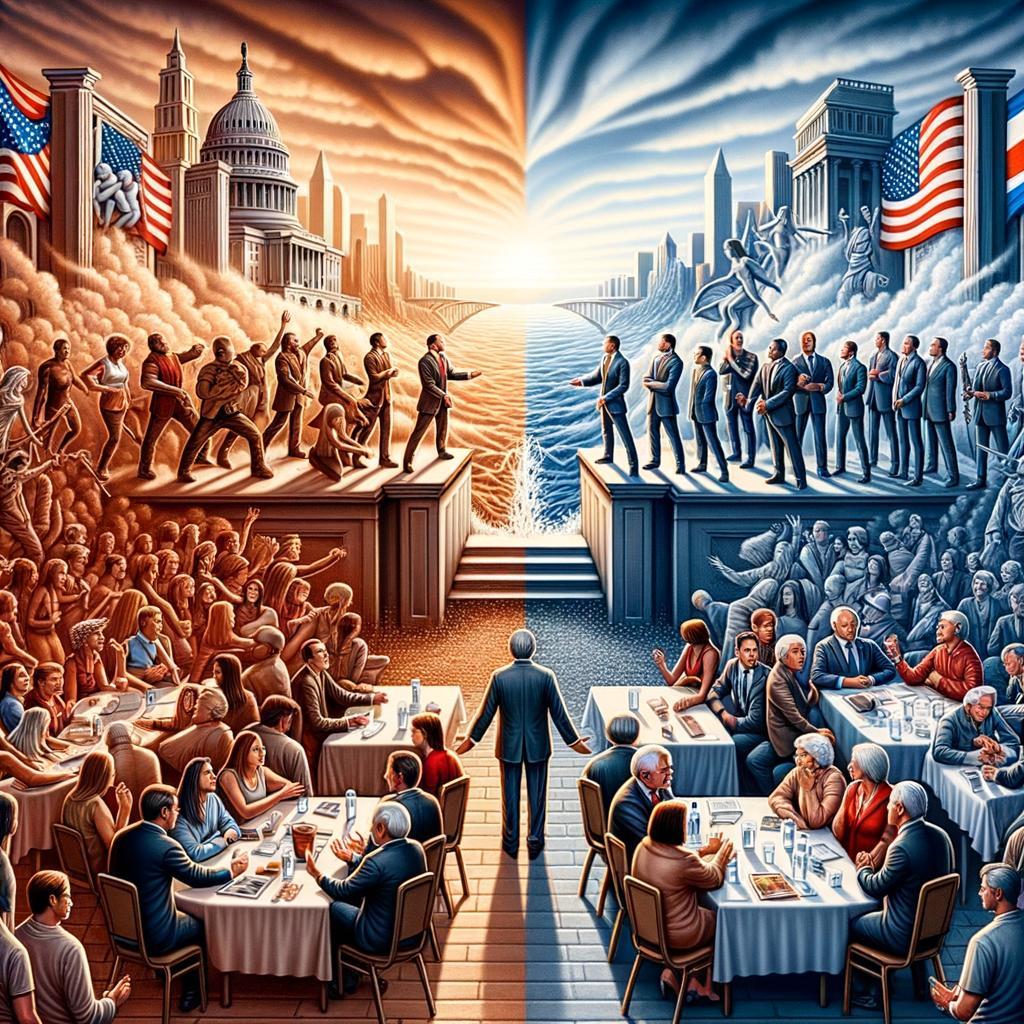In recent years, the landscape of American politics has become increasingly fragmented, marked by an intensifying polarization that divides not only political parties but also communities, families, and friendships. This growing chasm between differing ideological perspectives poses profound questions about the very fabric of democratic discourse and civic engagement in the United States. As citizens navigate a barrage of contrasting narratives and often hostile rhetoric, the need for a comprehensive examination of America’s response to political polarization has never been more urgent. This article aims to explore the multifaceted strategies employed by individuals, communities, and institutions to bridge divides, foster understanding, and cultivate effective dialogue. By delving into innovative solutions and highlighting success stories, we underscore the importance of active participation in the democratic process and the power of constructive communication in overcoming the barriers that polarization has erected. As America stands at a crossroads, it is imperative that we critically assess not only the challenges we face but also the potential pathways forward that can unite rather than divide.
Political polarization in the United States has deep roots, stemming from historical events, cultural shifts, and the evolution of media. Partisan alignment has become increasingly linked to social identity, where individuals view political opponents not just as rivals but as threats to their values and way of life. This tribal mentality has been exacerbated by the rise of echo chambers in social media, which allow extreme views to flourish without the challenge of opposing ideas. The impact is stark: citizens feel less inclined to engage with differing opinions, leading to a society that is more fragmented and less capable of finding common ground. Understanding this context is vital for addressing the polarization that plagues our political landscape today.
To counteract these divides, several strategies can be employed to encourage constructive dialogue among Americans:
- Promote grassroots initiatives: Support local forums that foster direct communication between diverse political groups.
- Encourage media literacy: Equip citizens with the tools to critically evaluate news sources and recognize bias.
- Emphasize shared values: Focus on common principles that unite rather than divide communities.
By implementing these strategies, we can pave the way for a more cohesive society where dialogue replaces disengagement, and understanding mitigates division. Such efforts are essential for restoring civility and ensuring that robust debates can occur without animosity, ultimately enriching the democratic process.
Concluding Remarks
America stands at a pivotal crossroads in its response to political polarization. The current landscape is not merely a matter of differing opinions; it represents a fundamental challenge to the very fabric of our democracy. As citizens, leaders, and communities, we must engage in a concerted effort to bridge divides, fostering dialogue rather than discord. Through education, active participation, and a commitment to understanding differing perspectives, we can cultivate a more informed and empathetic electorate.
It is essential to recognize that overcoming polarization will require dedication and creativity from all sectors of society — from grassroots movements to policy initiatives. The time to act is now, as the health of our democracy depends on our ability to find common ground. By prioritizing unity over division and collaboration over confrontation, we can help reshape the narrative of our nation and ensure that the ideals of democracy and civic engagement thrive. Let us work together to turn the tide and build a brighter, more cohesive future for all Americans.
